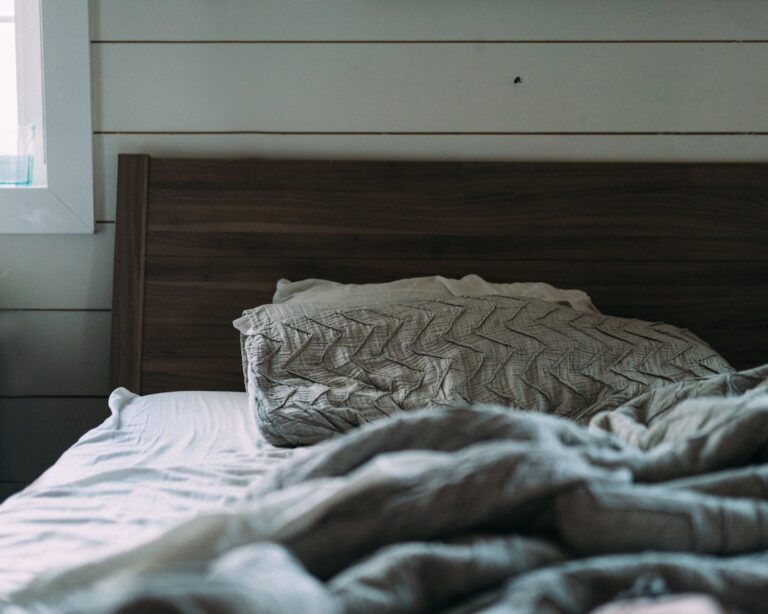
Even though we have never tried it, the majority of us are able to identify a specific sleep type or chronotype. Your biological clock is what determines when you should go to bed each night. This is your chronotype. You can choose to go to sleep before dawn or wake up with the roosters. Chronotypes also provide information about your daily activities such as: Eat, work, exercise, and socializing.
What is the Sleep Chronology?
A chronotype refers to a person’s 24-hour (or circadian) typology, or individual differences in morning/evening activity and alertness. Eva Cohen, a certified sleep science coach from Kansas-Sleep states. “Knowing your chronotype will help you understand how your biological clock operates.” You will learn how to make the most from your time. It will also help you to coordinate it with your daily tasks and activities. He elaborates. Cohen says Your chronotype is a way to determine when you’re most productive. It also allows you to plan your days wisely..
Sleep chronotypes
The chronotype types can be used to identify your sleep type. These are broken down into four categories. Bear chronotype and wolf chronotype. Lion chronotype and dolphin chronotype..
Bear Chronotype
Most People who fall within the bear chronotype category of sleep types are called bears. This means that The sun is the only thing that determines when sleep and wake cycles occur.. Cohen claims bear chronotypes are quick to wake up and usually get out of bed quickly. Do not fall asleep Without any difficulty. Productivity is at its best before noon. People in this group tend to nap between 2-4 pm.
Wolf Chronotype
The wolf sleep chronotype is often used It can be difficult to wake up in the morning. Cohen claims that the wolf chronotypes feel more awake when they wake up at noon. This is especially true since their peak productivity occurs around noon and ends about four hours later. Wolf chronotypes can re-energize around 6pm and can complete many tasks even when others are exhausted.
Lion Chronotype
Unlike wolves, lion chronotypes I like to rise early in the morning. Cohen said, “They will wake up early and be productive at noon.” Says. Typically, lion chronotypes settle in the evening and fall asleep around 9–10 pm.
Dolphin Chronotype
If you have difficulty following any kind of sleep schedule, you might be a dolphin. “People with the Dolphin chronotype don’t often get enough sleep. Due to their sensitive to noise and light,,” says Cohen. Says.
The good news is that there’s some good news. They are the most productive between 10 and 2pm, which is a great time to get things done.
Why is it important to know your chronotype?
The ability to identify your chronotype will give you insights into your sleep and wake cycles as well as peak productivity times.
It allows you to recognize when you’re falling asleep. These are some of its benefits:
One study showed that evening chronotypes sleep patterns are typically 2 to 3 hour later than morning ones.
It allows you to keep track of your eating habits.
It can also help you track your eating habits by knowing your chronotype. The link between chronotype, diet, cardiometabolic and health was examined. It was found that an evening chronotype was associated to a higher intake of energy drinks, caffeinated, sugary, and caffeinated beverages, and more fat-soluble energy, similar to wolf chronotypes. However, it also had a lower intake of fruits and vegetables.
It helps you to understand the link between sleep-wake and mental health.
Another review revealed a correlation between the evening chronotype of people and a wide range of negative traits. Mental health Issues such as depression are much more common than those who identify with their morning timezone.
What is my chronotype
Learn more about your chronotype.
A study found that your chronotype is dependent on many factors. Genetics, environment, gender, and age. Researchers also found that older adults were more likely to identify with the morning chronotype while young adults and teenagers tended to follow the evening one. They found that women were more likely than men to associate with evening chronotypes. This could be due to endocrine reasons.
How do I use sleep chronotype information?
Your waking quality can be improved by understanding and identifying your chronotype and your sleep cycles. Time and productivity It will help you to sleep better at night. Dr. Nate Watson is a SleepScore Consultant and codirector of the Washington Medical University Sleep Center. He says that most people are not morning or evening when it come to sleep and chronotypes. This means that they are in the “none” category. Their=”none” category means they are not eligible for the “none” category. Sleep should not be disturbed. However, he pointed out that those with an evening personality will be more inclined to go to sleep and wake up later than those who are morning-type.
Watson is a stable chronotype. According to the article, exposure to sunlight in the morning can make it easier for evening types. fall asleep sooner. Morning types can sleep later if they are exposed to daylight in the evening.
Watson also suggests that evening chronotypes work well in jobs that don’t require a early start or that allow for flexibility in work hours. Traditional clocks might work well for morning chronotypes.
Watson states that sleep is most effective when it happens predominantly at night, regardless if the chronotype. Says. “I suggest that both chronotypes (morning/evening) listen to their bodies, and get to bed when they’re ready. feel tired He says that they should get up only when they feel refreshed.”
This is the result.
A good night of sleep is vital for your mental and physical health.
Understanding your chronotype and how it affects you You can maximize productivity by learning about sleep and your wake times, as well as learn more about your health and discover new ways to improve your sleeping quality..